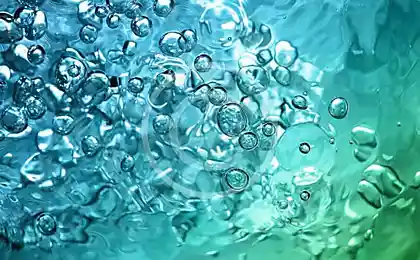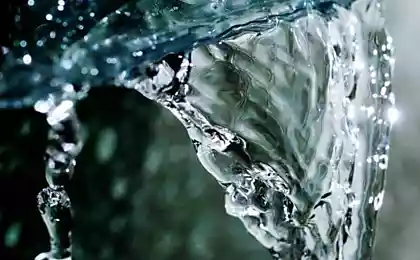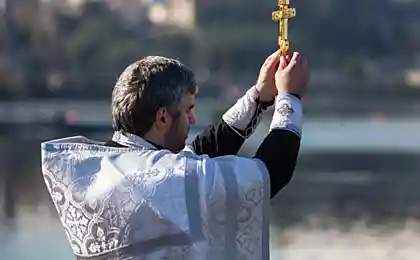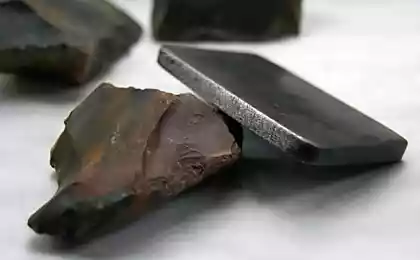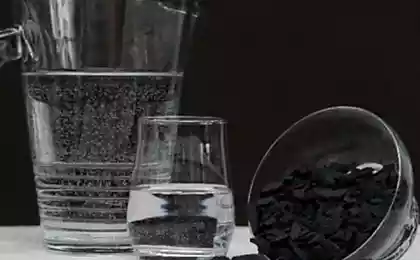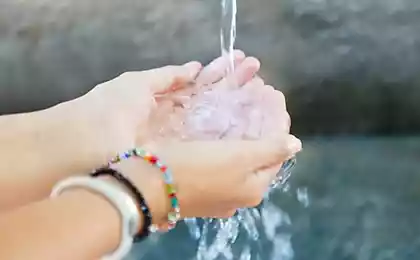221
A friend of the parishioner brought a jar of holy water and explained why it is necessary in the house
The day of the baptism of Jesus Christ is imprinted on the icon of the Epiphany. This important event awakened water that used to be faceless. She found her voice and sang with a special power to help those in need. When does water become holy and what should we do with it? Today's edition. "Site" He will try to answer all the questions.
When water becomes St. Archimandrite Sava calls water our sister. She is special because she needed one touch of Christ to recognize in him the loving Creator of all earthly things. Only truly wise people can enjoy water.

But when water becomes holy, what makes it so? The rite of consecration takes place not on a chemical but on a metaphysical level. It is a miracle, that is why it is called consecration.
God invented water, and it trembles and rejoices in response to his touch. This is what makes ordinary water holy. And this applies not only to water, but also to the person. He also becomes a saint when he finds the strength and courage to respond to the Creator.

The awe living in holy water is contagious. Humans cannot feel the touch of Christ, but water brings us closer. Water is our teacher. It teaches us to praise God. She is a shrine that can renew hearts and awaken souls.
In order for water to become holy, it must be sanctified. For this, the clergy conduct a special ritual of water consecration. This is the ordination of prayers and sacred actions that convey special grace-filled properties to the water.
It is believed that water, consecrated according to all rules, has a protective force. With its help, you can heal and sanctify. For this reason, there must be holy water at any service.

At home, holy water serves as a talisman and a reliable protector from any ailments. If you feel that you are sick, drink holy water on an empty stomach with prosphora. If you plan to go on a long trip, go to church and ask for holy water.
The same goes for students before the start of the new school year. Everything in the temple also passes through the consecration of holy water. It can be used for things that need special protection. For example, vehicles, on the serviceability of which human lives depend.

Great consecration of water occurs 2 times a year: on Epiphany Eve and on the day of Baptism. However, for everyday needs, you can use water that has passed the rite of minor consecration (small agiasma). It is performed daily in any temple. It is this water that can be sprinkled with needy people or consecrated housing and objects in it.
Consecrated water is used to lubricate sick places with it. But we are not talking about compresses, namely anointing. It is usually done by drawing a cross on the skin. What matters is not how much water you use, but how long your body is in contact with it.
There are also serious prohibitions associated with the use of holy water. For example, it can not be typed in dirty dishes. Also, you should not store such water at home for years. This is wrong and is considered a shrine. Holy water should be used and shared with others in need.

Never put holy water in the refrigerator or put it in the sink. If the water is spoiled, it is best to pour it into a river or lake. Remote places where people and dogs do not walk are also allowed. Women are not allowed to take holy water during critical days.
The council of the editorial board of Holy Water helps those who sincerely believed in its healing properties and repented. It not only cures ailments, but is also able to rid a person of passions and evil, directing him towards good.

Although the Eve of Eve and the Baptism of the Lord are already behind you, you can always go to the temple for holy water, which has passed the rite of small consecration. May God take care of you!
When water becomes St. Archimandrite Sava calls water our sister. She is special because she needed one touch of Christ to recognize in him the loving Creator of all earthly things. Only truly wise people can enjoy water.

But when water becomes holy, what makes it so? The rite of consecration takes place not on a chemical but on a metaphysical level. It is a miracle, that is why it is called consecration.
God invented water, and it trembles and rejoices in response to his touch. This is what makes ordinary water holy. And this applies not only to water, but also to the person. He also becomes a saint when he finds the strength and courage to respond to the Creator.

The awe living in holy water is contagious. Humans cannot feel the touch of Christ, but water brings us closer. Water is our teacher. It teaches us to praise God. She is a shrine that can renew hearts and awaken souls.
In order for water to become holy, it must be sanctified. For this, the clergy conduct a special ritual of water consecration. This is the ordination of prayers and sacred actions that convey special grace-filled properties to the water.
It is believed that water, consecrated according to all rules, has a protective force. With its help, you can heal and sanctify. For this reason, there must be holy water at any service.

At home, holy water serves as a talisman and a reliable protector from any ailments. If you feel that you are sick, drink holy water on an empty stomach with prosphora. If you plan to go on a long trip, go to church and ask for holy water.
The same goes for students before the start of the new school year. Everything in the temple also passes through the consecration of holy water. It can be used for things that need special protection. For example, vehicles, on the serviceability of which human lives depend.

Great consecration of water occurs 2 times a year: on Epiphany Eve and on the day of Baptism. However, for everyday needs, you can use water that has passed the rite of minor consecration (small agiasma). It is performed daily in any temple. It is this water that can be sprinkled with needy people or consecrated housing and objects in it.
Consecrated water is used to lubricate sick places with it. But we are not talking about compresses, namely anointing. It is usually done by drawing a cross on the skin. What matters is not how much water you use, but how long your body is in contact with it.
There are also serious prohibitions associated with the use of holy water. For example, it can not be typed in dirty dishes. Also, you should not store such water at home for years. This is wrong and is considered a shrine. Holy water should be used and shared with others in need.

Never put holy water in the refrigerator or put it in the sink. If the water is spoiled, it is best to pour it into a river or lake. Remote places where people and dogs do not walk are also allowed. Women are not allowed to take holy water during critical days.
The council of the editorial board of Holy Water helps those who sincerely believed in its healing properties and repented. It not only cures ailments, but is also able to rid a person of passions and evil, directing him towards good.

Although the Eve of Eve and the Baptism of the Lord are already behind you, you can always go to the temple for holy water, which has passed the rite of small consecration. May God take care of you!
Husband left for the anniversary of his mother alone and returned in upset feelings, I refused to go to the holiday
Lightness and weightlessness of tangerine roll, which gives a feeling of celebration on any day
